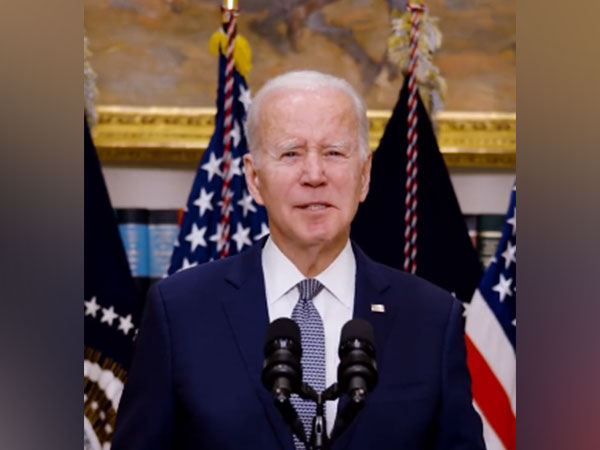US CDC confirms H5N1 bird flu infection in child in California
The US Centers for Disease Control and Prevention (CDC) has confirmed a human infection with H5N1 bird flu in a child in California

File Photo of US president Joe Biden [Source: ANI]
Six months after the US-Africa Leaders’ Summit hosted by President Joe Biden in Washington with much fanfare, here is a reality check. In 2014, US direct investment in Africa was at an alltime high at close to $69 billion; by 2021, it had dropped to $45 billion. The high-on-rhetoric American liberal establishment spoke glowingly of the Biden Administration’s commitment to Africa’s future and a simpatico commentariat happily regurgitated this narrative.
The official media release issued by the White House after the Summit highlighted the US “commitment to expanding and deepening our partnership with African countries, institutions, and people… Our world is quickly changing, and US engagement in Africa must evolve accordingly.” Presumably President Biden did not mean to suggest ~ given the currency of the American aphorism, put your money where your mouth is ~ that the continent is getting what it deserves in terms of American commercial engagement.
In this context, a new commentary by former US Deputy Assistant Secretary of State for African Affairs Witney Schneidman, and leading Africa expert Gracelin Baskaran asks: What has the President’s Advisory Council on Doing Business in Africa (PAC-DBIA) accomplished over the course of seven meetings and five reports? The precipitous decline in US direct investment from when President Barack Obama established the committee in 2014, cannot just be explained away by the challenges Africa has had to confront over the past decade ~ from Ebola to the Covid-19 pandemic, and the impact of Russia’s invasion of Ukraine to debt distress and the intensifying adverse effects of climate change. Conflicts too have erupted across the continent from Ethiopia, Mozambique, and Sudan to the Sahel region. But all these factors save the pandemic and the Ukraine war, which affected everyone, have been present to a greater or lesser degree in Africa for years, if not decades.
Advertisement
Yet African leaders, recognising these impediments to FDI, have tried to create an enabling environment for investments even at the risk of losing domestic support, hoping the Americans will follow through on their promises. That does not seem to be happening in any significant measure. Which begs the question, why give false hope to an already struggling continental economy? Perhaps such pessimism is unwarranted, but only if the detailed and wellthought through recommendations made by Schneidman and Baskaran find receptive ears in the US policy making establishment. The recommendations include reducing private sector risk by ensuring the US International Development Finance Corporation plays a key role in making available governmentbacked loan guarantees that can shift risk allocation and boost investor confidence.
The authors also underline two types of financial products that can be leveraged ~ a partial credit guarantee, which provides unconditional commitments to fulfil a share of the borrower’s debt obligations in the instance of a default, and risk insurance, which provides protection against currency volatility and specified political risks.
The strategic importance of American commercial diplomacy on the African continent, which is increasingly falling under Chinese sway, cannot be understated. The USA has stepped up its support of the private sector, some argue. That is not incorrect. On the flip side, since 2016, US commerce secretaries have spent a cumulative one day on the continent.
Advertisement